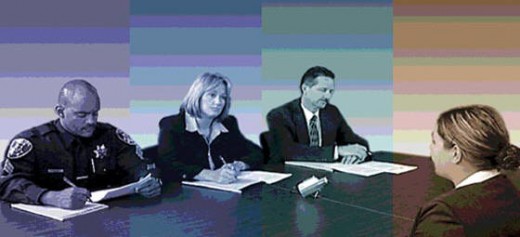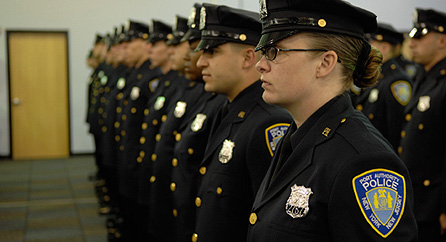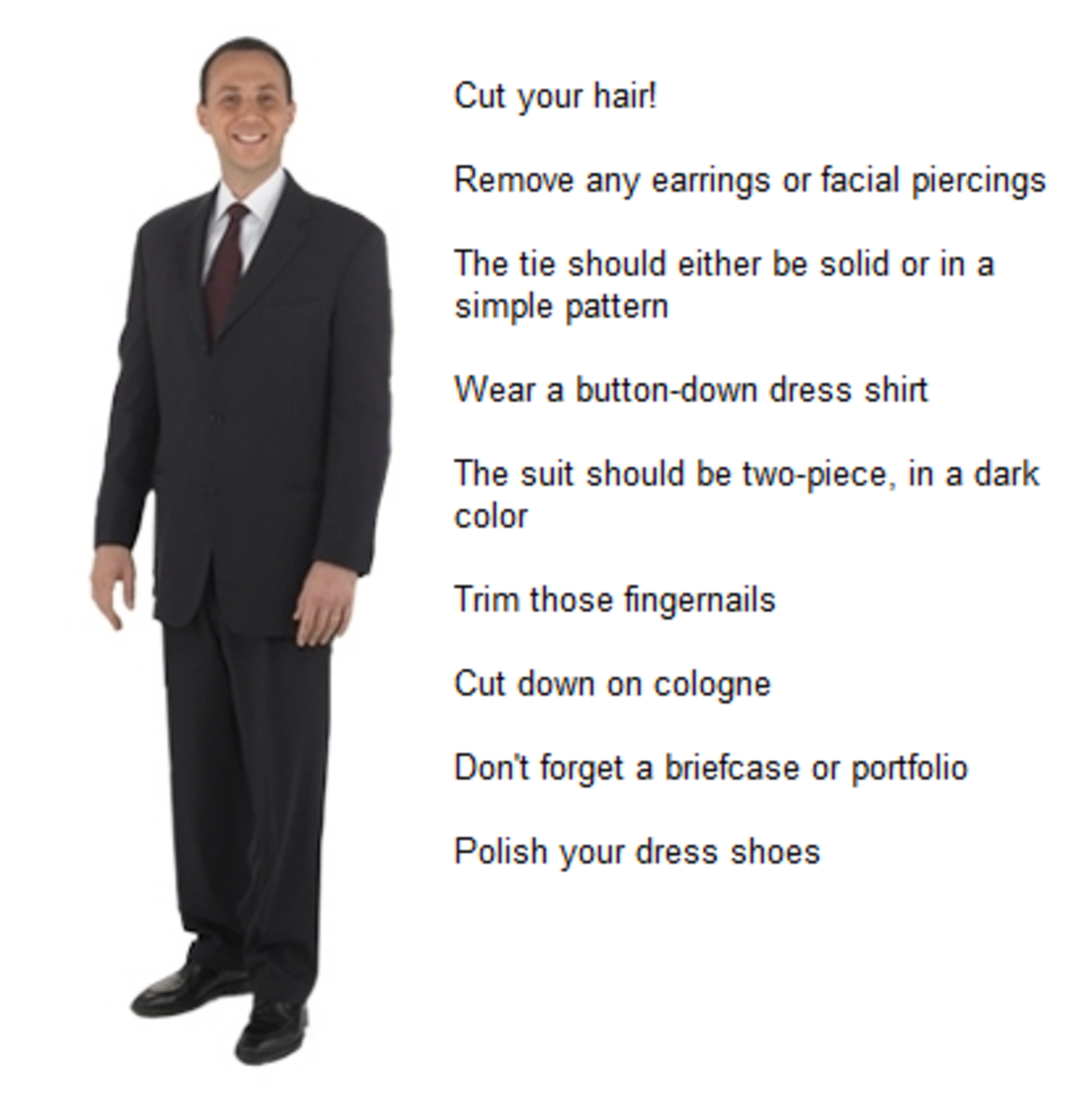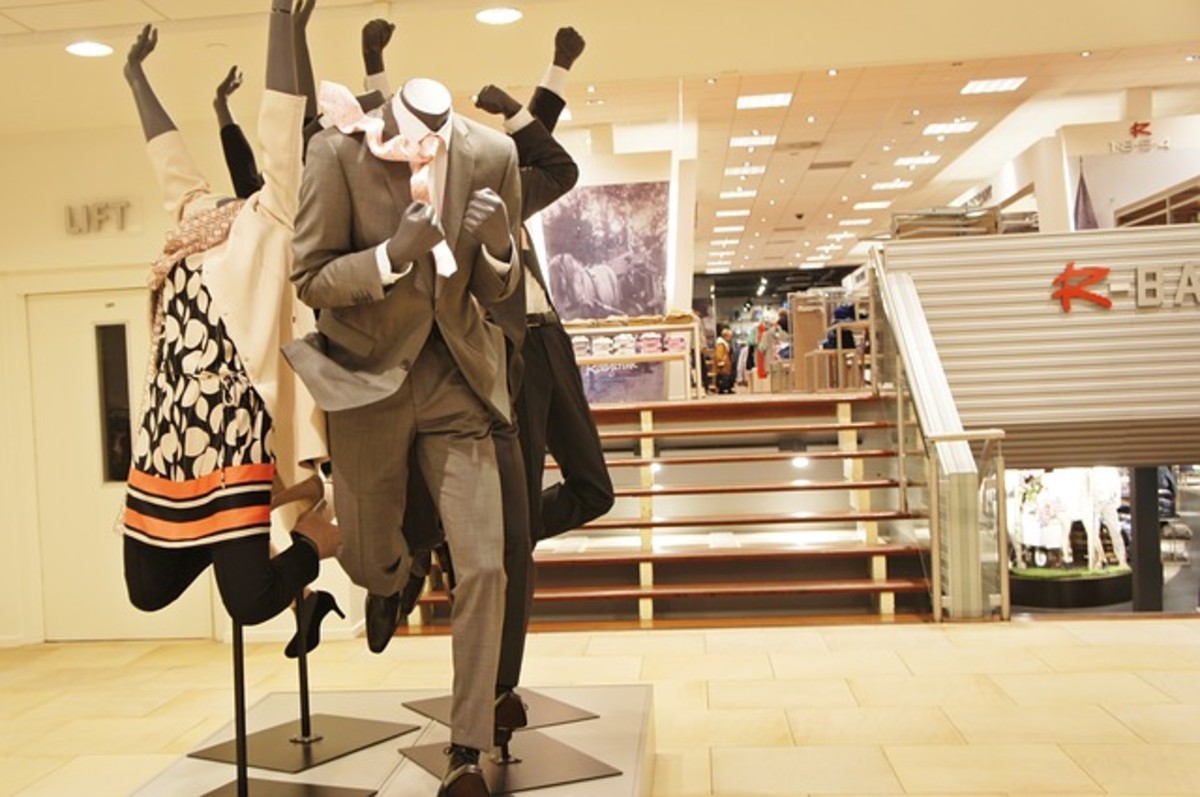How to Ace Your Police Oral Board
First Thing's First...
This article is a GREAT starter, but it simply can't give you all the answers (nobody can do that), so I highly recommend that you supplement these tips with your own independent research. That will surely give you a huge advantage over the competition!

The Days and Weeks Before
So you've gotten that call from Yourtown Police Department, you've passed your background investigation (phew...good thing they didn't dig TOO deep, right?) and they want you back for an interview. The sergeant on the other end of the line tells you that it will be a board consisting of 3-7 other officers and high-ranking individuals asking you questions. He gives you a date, and you're supposed to be back in 3 weeks for your interview. So what now? First, WRITE DOWN THE DATE AND TIME. I know this sounds pretty basic, but do it. The last thing you want to do is be late (or a day early, for that matter) and ruin your chances right then and there. Write the information down and keep it somewhere you know exactly where to find it. Mark your calendar, etc. After that, it's just practice. Go over some basic police oral board questions (I'll get to some of those later) in your head and practice your answers, every moment you can. It would also be very beneficial to you to practice with someone you know or practice in front of a mirror. If it's someone you know, make sure they'll be completely honest about how your answers sound and how you come across, because this will be of utmost importance on interview day. Practicing in front of a mirror, on the other hand, will let YOU know how you sound and what your body language looks like while your answering the questions. Next order of business: proper interview attire. Please, again I say PLEASE, do not even go into the building wearing flip flops, blue jeans, and a shirt that says "Hard Rock Cafe" on the front. First impressions are huge in these interviews, and that gives a first impression of "I really don't care if I get this job or not". They need to be sure you want it when you first walk in that door. Ladies AND gentlemen, if you remember this rule your attire will be fine: "I'm meeting the President." Even if you don't like our current president, think of one you would be honored to meet and dress like you're going to meet him. Keep this in mind as well, blue is a calming color; both for you and for the board. Blue isn't mandatory, obviously, but what color are most police uniforms?... Make sure you're clean shaven (gentlemen AND ladies) and don't wear too much cologne/perfume; It's a put-off. Lastly, get a good night's rest (you don't want to be rushing in the morning) and have a light breakfast before you leave. If you do eat breakfast though, remember that toothbrush!

Walking Into The Room
So you've followed the instructions above, and you're as prepared as you can be for this defining moment in your law enforcement career. Your heart is pounding as someone comes into the lobby of the police department, calls your name, and says "Right this way". You're a little shaky from nerves, but that's alright. You walk down a hallway with this person who is holding a manila folder with your name on it in black marker. You come to the door marked "INTERVIEW", they open the door, and... Here is where I really want you to pay attention. There is an art to how you enter the room and give the best first impression possible. When you first enter the room, there will (in most cases) only be one empty chair and several pairs of eyes beaming right at you. Don't let this intimidate you. They're hungry for a good first impression, so give it to them! Stand near your chair, face them, and give them a genuine smile. You guessed it, that one empty chair is yours. DO NOT sit down in it until the board tells you to do so. When they ask you to have a seat, be polite and say "thank you". Sit straight up near the edge of the chair with your feet firmly planted on the ground in front of you. Don't cross your legs. If you're sitting at a table, don't rest your arms on the table; hold them in your lap in front of you. Each of the board members will introduce themselves to you. Sometimes there is a speaker for the entire group that will introduce everyone. As they are introduced, give them a short greeting such as "hello" or "pleasure to meet you" and remember, SMILE. Now the questions begin...
Just For Fun...
Which is your Favorite Police Car?
The Moment of Truth and Some Common Questions
You've given a good first impression to the board, and you're ready to show them what you know. This is a good attitude to have. Remember...confident, not cocky. The first question the board will generally ask you is, "Can you tell us a little bit about yourself?" This is a good opportunity to reinforce the good first impression you gave them, or what I like to call a "Second First Impression". The board doesn't want to know what you had for breakfast or how many cats you have. They want to know what kind of person you are. Give them a (very) brief background of your life, but then tell them what has led you up to where you are now. Why are you sitting in front of them? What are some of your good attributes? Why do you want to be a police officer? Don't rant on for too long though, because you might get a little ahead of yourself (or them). In other words, build yourself up a little bit, but leave some room for them to dig a little deeper later in the interview. From the moment you start speaking, the board will be writing on paper that is in front of them. They are just taking notes, nothing more. Don't always assume they're writing something negative. In fact, there will definitely be times where they're writing down positive remarks about you or your answer. Depending on the department and the board, they may follow with basic interview questions that you've heard a million times before. Remember that the answers you give here are VERY important too. Don't write them off as filler. These include, "Tell us a situation where you've been under great stress and how did you deal with that situation?" or "What is your greatest weakness, and what steps have you taken to improve upon it?" or "How do you keep yourself organized at work". I was even asked in mine, "Tell us of a time when a co-worker or supervisor upset you and how did you deal with that situation?" They can basically ask whatever they want to, but questions like these are most common. The board will undoubtedly press you after your answers. Don't let them fluster you, just answer and be confident about said answer. The last part of the interview will be the situation questions. These are used to get a moral baseline on you and determine how successful and honest of a police officer you will be. These questions are vast, but the most common will be along the lines of: "What would you do if you went on an open-door call at a closed business and you saw your partner take a piece of candy without paying for it?" or "What would you do if you stop someone for erratic driving, approach the vehicle and find out it's your supervisor and he's intoxicated?" or "What would you do if you got a call for a domestic disturbance, and when you arrive you hear a baby screaming. So you make entry into the house, see a badly injured infant laying on the floor and a guy run out the back door of the house?" They will press you even harder about your answers for these questions, and they will even sometimes change the situation altogether and ask it again. Stick to your answers, but if you feel that you gave a bad one, don't be afraid to ask for clarification or change it. When it comes to the moral baseline questions, what's right is ALWAYS right. Keep that in mind; it's so important. You tell your partner to put the candy back. If he doesn't, you go to a supervisor. You take that intoxicated supervisor to jail; he isn't above the law. As far as the injured infant, you stay with it, call for Emergency Medical Services, and put out a good description of the suspect. Also, NEVER relinquish your weapon. If someone has a gun to your partner's head, you shoot him (the bad guy, not your partner). Some questions may seem like there is no "good" or "perfect" answer, and that's correct. Just use common sense and be honest. Don't just tell the board what you think they want to hear. If you follow this guide, you will be successful in your first (or next) police oral board interview.




